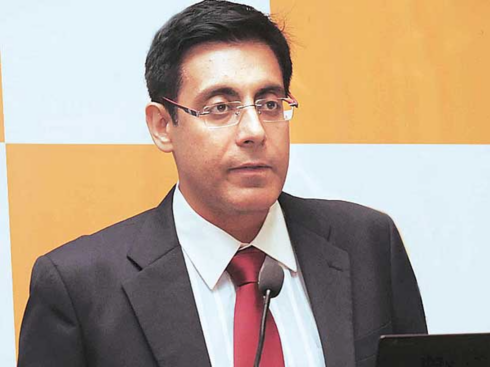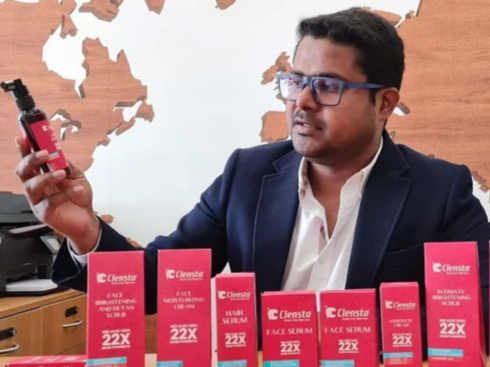SUMMARY
Will Jaitley Cater To The Health Of Indian Healthcare Startups In Upcoming Budget 2018?
This article is part of the special coverage of the upcoming Union Budget 2018 from the lens of Indian startup ecosystem. In this pre-budget series, we’ll shed light on major expectations of the startups from Budget 2018 for various industries including healthtech across all the key areas including taxation. To read all the stories of this special coverage of Budget 2018, click here.
“The future is not about eliminating physicians, it’s about leveraging physicians by providing digital and other tools” – James Madara, MD, Executive Vice President and CEO, American Medical Association.
For a country like India, it becomes more imperative to take this advice into consideration. Amid a population of over 1.3 Bn, the 1: 1,700 doctor to patient ratio in the country is extremely poor in comparison to the prescribed ratio of 1:400 by WHO. Also, according to ICRA (Investment Information and Credit Rating Agency), public sector investment in healthcare is one of the lowest in India, globally accounting about 1.5% of the GDP.
Reportedly, the Finance Minister Arun Jaitley in the Budget 2018 is poised to raise health care spending by 11% to $8.2 Bn which could help in meeting critical health infrastructure gaps. However, the Union Health Minister, JP Nadda, has reportedly demanded a bare minimum health budget of $10 Bn for 2018-19 which translates into a steep 33% increase in the sector!
It’s important to note that countries like Tuvalu and Maldives spend 16.5% and 13.7% of their GDP on healthcare respectively, while India’s healthcare spending has remained stagnant at 4-6% for the last three decades, which is not sufficient.
India’s current healthtech industry is growing in profusion with key elements such as innovation, creativity and the aspiration to solve the prevailing healthcare gaps. Even as the growing population in the metros is able to enjoy the lucrative benefits that come with technology in the healthcare industry, cities beyond these metro need to explore the opportunities of this sector in tandem with each other.
Further, with 90 healthtech startups getting launched in 2017 alone, a more industry-oriented regularisation could not have been felt in a compelling scenario such as today. And going ahead this industry is expected to continue to grow to $280 Bn by 2020.
Therefore, apart from spending the budget on providing subsidies to medical colleges, free medicine, and R&D, the government must take into consideration the growing section of startups that are trying to reduce the prevailing gaps in the Indian healthcare ecosystem.
Healthcare Budget 2017: Hits And Misses
Prashant Tandon of 1MG in a conversation with Inc42 shared his thoughts about the Budget 2017 marked for healthcare.
- New Drugs & Cosmetics Rule and Ensure Use of Generic Medicines: He said that this was a good theme to ensure availability of drugs at reasonable prices, but startups believed that the process of implementation was patchy.
As per Tandon, “Although, there are lots of price controls and expansion of Jan Aushadhi stores, but two key areas still hampering the growth and access were ePharmacy for Jan Aushadhi and allowing the patient to choose a generic equivalent to a branded medicine. Both these points are key requirements if this program is to succeed and while the draft pharma policy did touch on allowing substitution, the actual move has not yet taken place. Also, Jan Aushadhi has not yet embraced the ePharmacy model, thereby limiting its access to a few locations across the country as suggested by the startup community.”
- EHR cards for pensioners linked to Aadhaar: He said that the healthtech startup community hoped to see this stack have opened APIs for private players to innovate in partnership with this backbone. “Unfortunately, we did not see much happen in this regard,” Prashant said.
- Telemedicine using digital technologies in DigiGaon: The healthtech startups considered it as another great thought and key to bringing healthcare access to all.
Tandon further added that the norms for telemedicine are still not defined and the healthtech startups need a lot more clarity on the way forward if they require seeing strong investments in this model.
“As highlighted in an economic survey, the current healthcare infrastructure and setup is not adequate or equipped to handle the challenges. The government spending is low, and the model is broken and needs to be fixed fundamentally and is saddled with corruption and inefficiency,” he said.
As per the survey, it said that on state capacity, delivery of essential services such as health and education, which are predominantly the preserve of state governments, remains “impaired”. But there are insufficient instances of good models that can travel widely within India.
“To me, these core issues were mentioned, but not really addressed this year either. The government cannot fix healthcare by itself, it needs technology, innovation and private entrepreneurs to lead this change. It needs to provide a rapid or active and supportive ecosystem for healthcare entrepreneurs to innovate. However, these aspects are not really addressed and we still have a lot of last century debates on regulation being preferred over innovation,” added 1mg co-founder.
Why The Union Budget 2018 Should Take The HealthTech Startups Into Consideration
According to a recent report by ASSOCHAM and RNCOS, the Indian healthcare market, which was worth $110 Bn in 2016 is likely to grow at 22% CAGR to reach $372 Bn by 2022.
Factors such as a rising middle-class coupled with infrastructural abilities such as the state-of-the-art healthcare facilities, expert physicians and increased dependency on technology to facilitate healthcare at the prevention stage, are driving the growth of the healthcare industry in India, thereby expecting the industry to attain double-digit growth.
However, at the same time, the percentage of chronic ailments as well as medical expenditure has also been on the rise, going heavy on the pockets of an individual. As per a United Nations Population Fund report, of the 300 Mn 60+ aged people in 2050, 200 Mn will suffer from diseases such as cancer, cardiovascular diseases, diabetes and more.
On an average, these diseases tend to increases the spend in a home by 36-44% in comparison to other households with similar demographics.
Further, the Indian healthcare ecosystem has already seen a shift from traditional diagnostic, medicine delivery solutions to solving the health issues at the root level and harnessing opportunities in the niche areas with the help of new age technologies such as AI, IoT, cloud, better research equipment, 3D Printing and more.
From building hardware equipment at low cost to introducing cloud services for remote monitoring or doing research for critical diseases or creating an IoT enabled environment for outstation patients at their homes, these healthtech startups have brought a typical amalgamation of technology and convenience right at the patients’ doorstep.
These healthtech startups are not only bridging the gaps between the doctors and the patients but are also creating an ecosystem to facilitate a better healthcare environment.
As Amit Munjal, founder and CEO of healthtech platform Doctor Insta rightly points,
“The telemedicine or virtual healthcare market in India has witnessed a significant growth, owing to its potential of providing world-class clinical and medical services to distant and rural locations as well as to large cities where people have time constraints and telemedicine provides Instant access addressing the health needs anytime, anywhere.”
Issues HealthTech Startups Want To Get Resolved With Union Budget 2018
As Amit said, though the industry has garnered the good support of both the government (SEHAT Program) and private organisations that are investing religiously in telemedicine industry, infrastructure issues still remain an impediment albeit less than earlier in unleashing the growth of this sector.
“Even though the market is poised for an upswing, it is still currently constrained by the slower than expected adoption and engagement of users,” he added.
Adding to this Prashant Tandon said, “The Budget 2017 expanded the healthcare expenditure as a percentage of GDP, which was followed up with the National Health Policy 2017 taking shape. That was good to see: the aspiration has been articulated to increase health spending from 1.5% to 2.5% of GDP.”
He also shared some of the concerns that healthtech startups need the government to address with Union Budget 2018.
All healthcare related Acts and regulations need to be updated with a clear lens on the actual operating dynamic.
Norms for new systems like telemedicine need to be clear.
There needs to be a clear and robust classification of medicines and we need stronger controls for antibiotics and easier access for chronic medicines.
The government bodies that decide on regulatory updates also need to be largely reformed and include innovators and experts from the new age to frame the models.
The Government Need To Become An Active Enabler
The healthtech startups also want the government must focus on enabling an ecosystem of innovation in healthcare. It is also suggested that a health Innovation council should be set up to fast-track approvals to innovative models is the need of the hour.
Going a step ahead, Man Mohan Gupta, Mentor from MyMedicineBox suggested that since India do not have sufficient doctors to handle even the general health problems, a course should be designed for people already in the profession but do not have a degree to practice.
“The duration of course must not be more than one year and based on our Prime Minister’s vision on Skill development. We can term the designation as Jr. Doctor and so called doctors can treat major in prime phase. They have to prescribe or dispense only generic medicines. This will save a huge amount of money and more people will get employment and more people will enjoy better health,” he added.
To Keep Up Interest Of The Private Sector
There is a clear public dissatisfaction with the cost and quality of healthcare and we have witnessed huge protests against hospitals, doctors, etc. “Populism might tempt the government to take draconian measures that throttle the private enterprise and due to the (many) bad apples, the entire industry could suffer. However, the government needs to ensure that they don’t go for the populist and draconian measures as a public statement,” stated Prashant.
Since public healthcare delivery is really not up to the mark, and if private interest also is diminished, it would do immense damage to the institutions and the profession of medicine in the long term.
The Inherent Status Quo
There is no doubt that the healthcare industry is governed by regulations, and innovation requires a new way of operating. In healthcare, entrepreneurs face a very strong barrier of dealing with regulation and the people who sit in judgment are those who are the incumbents and regulators.
“We need a more open, flexible and inviting ecosystem to encourage innovation. This means regulation will need to keep pace and move as a supportive force, rather than the bottleneck and we do not have that luxury to not fix this important sector,” said Prashant.
Prashant’s views are further supported by Surajit Chakrabartty, CFO, MedGenome Labs. According to him, the government should aim at creating a conducive atmosphere of fostering research, development and innovation, if it really wants its dream of Make in India drugs, biomarkers, biosimilars, etc. as a reality.
“Priority status to healthcare sector including hospitals and diagnostic centres and incentivising technology-driven companies would boost expansion of healthcare services across the country. Apart from budgetary allocations, the government should also take steps to create an ecosystem that brings together academia and industry to boost innovation in healthcare,” he added.
Man Mohan Gupta further stated,
“The Government must relate the healthcare with patient data and artificial intelligence to manage healthcare at the lower cost. Government must bring a notification to make health at cheaper cost at private hospitals. There should be pricing of patient care related to infra cost recovery of hospitals. Once the cost of equipment and infrastructure is recovered, the operating profit must be used in care of general ward patients.”
GST Initiated The Mixed Feelings
On the GST front, the startup community was seen divided. While a few believe that a positive impact can be seen in a long-term, while some expect a few more relaxations in the regulation.
For instance, Meena Ganesh, MD and CEO, Portea Medical shared that critical care equipment like Ventilator, Oxygen Concentrator, BIPAP, CPAP, etc. are under 12% GST and 7.5% customs duty. “Since these are life-saving equipments, these should be made tax free.”
She further added, “Mobility assist equipment like a wheelchair, walking stick, crutches, etc. are under 5-7.5% GST. Under VAT, they were tax-free. The mobility assist equipment should be made tax free. Spare parts for all medical equipment is being taxed at 28% GST. This is too high and should be taxed at a lower rate as the original equipment.”
On a positive note, however, a few startups are of the thought that GST will enable cross-border supply of medicines without any added constraints, thereby helping both the distributors and the healthtech startups in the space.
Lastly, given that the input credit is a significant amount, this will also impact the spurious or poor quality portion of the industry since more transactions will move to a tracked system with bills, basically, the retailer who buys cash will not get credit, hence his or her margin differential would be lower now.
“As a result, I expect pan India distribution to be set up with better inventory systems, better distribution models, technology driven supply chains and a significant investment would come to this sector, which has been working the same way for decades,” said Prashant.
Affordable Healthcare For All
Rekuram Varadharaj, co-founder and COO along with Krishna Ulagaratchagan, co-founder and CEO, healthi with healthtech sector undergoing a rapid transformation in India, it is hoped that the Budget 2018 will focus on affordable healthcare for all.
“Health insurance is a big area of concern and healthcare expenses are also on the rise. We hope to see more allocations towards this end in Budget 2018.” The duo added.
Statistics indicate that while 85% of the people are covered by private medical insurance, about two-thirds of medical expenses are self-funded in India. About 15% of the population is neither covered by private or government insurance schemes. A positive step in this direction would be to increase the exemption on medical reimbursement.
Further, non-communicable and chronic diseases are increasing in incidence in India with the number of people affected set to be double by 2020. India has always been biased towards curative care rather than preventive health. “This needs to change and the government should invest in setting up a strong public health system focussing on preventive health with a good allocation for the same,” added Rekuram and Krishna.
A similar opinion is voiced by Surajit too. As he stated, “We expect the Budget 2018 to make provisions for increased public health spending, investing in building and maintaining public health infrastructure, setting up new medical academies and considering to make health insurance mandatory for all. Ensure public health spending is utilised in an efficient manner by involving representatives from the corporate sector, research institutes and bureaucrats to oversee the progress and guide accordingly.”
Lacking the basics such as end-to-end cold supply chain for drugs, technology and infrastructure at large, it will slipslop to think that the upcoming Union Budget 2018 would even address a significant part of the giant, but a cumin in a camel’s mouth.
However, as an enabler for healthcare startups, the government must take the policy initiative to pave the way for healthcare startups while supporting the same from the backend through the budget allocation.
For instance, the government must finalise the Drone policy at the earliest making a way for a number of healthcare startups who want to address the supply chain of drug using drones to meet the immediate requirement.
Most of the healthcare startups extend their services only to private hospitals, as public hospitals are either less communicative or they are also presumably not open to new solutions. Moreover, these hospitals don’t have the adequate facility that could provide correct data to these startups to process further.
For instance, owing to the poor housekeeping at public hospitals, the same data from public hospitals and private hospitals might conclude different scenarios. Through the Budget 2018, the centre should enable the convergence of all the stakeholders such as doctors, public and private hospitals, startups and other players to solidify the overall communication.
[Written by Suprita Anupam and Meha Agarwal.]
In the coming parts of the pre-budget series, we will be providing a detailed analysis of expectations from Union Budget 2018 accompanied with commentaries and diverse views of multiple stakeholders including views from the leading startups of India from different sectors. To read more articles on this series click here.



























